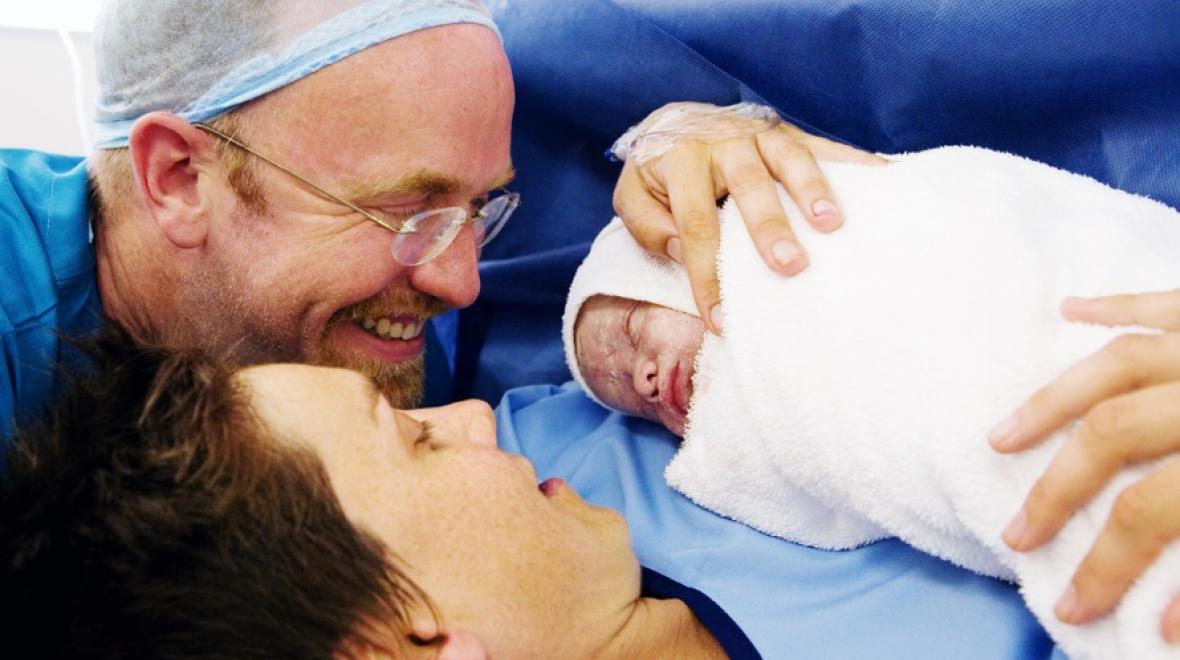
When my daughter was born via cesarean in 2006, she was given a routine once-over by a nurse, wrapped in that familiar striped hospital blanket and placed on my chest. I was exhausted after 24 hours of labor, puffy from IV fluids and nervous about breastfeeding, so my baby’s microbiome wasn’t exactly top of mind. In fact, I hadn’t even heard of it. Had she been born a decade later, though, things would have been different.
Today, we know that the microbiome — the host of beneficial bacteria living on and in our bodies — has profound impacts on our health throughout our lifespan, affecting everything from our waistline, allergy profile and mood to our risk of serious illnesses like diabetes and autoimmune disorders.
Babies start picking up beneficial bacteria at birth, when they move from the sterile womb through the mother’s vagina. So babies who skip this trip down the birth canal, i.e. those born by cesarean, start life with a biome that’s less diverse and robust than those born vaginally. These differences continue into adulthood.
Since a third of babies are now born via cesarean, this microbiome deficit could have broad health implications for lots of people, now and for decades to come. So it’s no surprise that parents thinking about a surgical birth want to help their infants get more good gut bacteria.
How? Mothers can request a vaginal wipe that might help boost their cesarean-born babe’s microbiome.
Here’s how it works: A tampon-like piece of gauze is placed in the mother’s vagina, then used to swab the baby immediately after birth, transferring the beneficial bacteria from the mother’s birth canal to the baby. Mothers can request this as part of their birth plan (sometimes as part of a family-friendly C-section offered at some local hospitals) and it’s often performed by their partner.
Seattle parents are helping lead this trend, says Mary Lou Kopas, the University of Washington Medicine midwife featured in this video. Pacific Northwest parents are health conscious, they eat well and they’re taking probiotics for their own health, so they want to help build their baby’s biome, too, she says. Though the jury is still out, scientifically speaking, on the benefits of the wipe, it may be a simple, low-cost way to boost health long-term.
“It takes a long time for research to move into practice,” Kopas says. “Here, consumers are leading the trend.”
Editor’s note: This article was originally published in 2017, and updated in July 2019.











